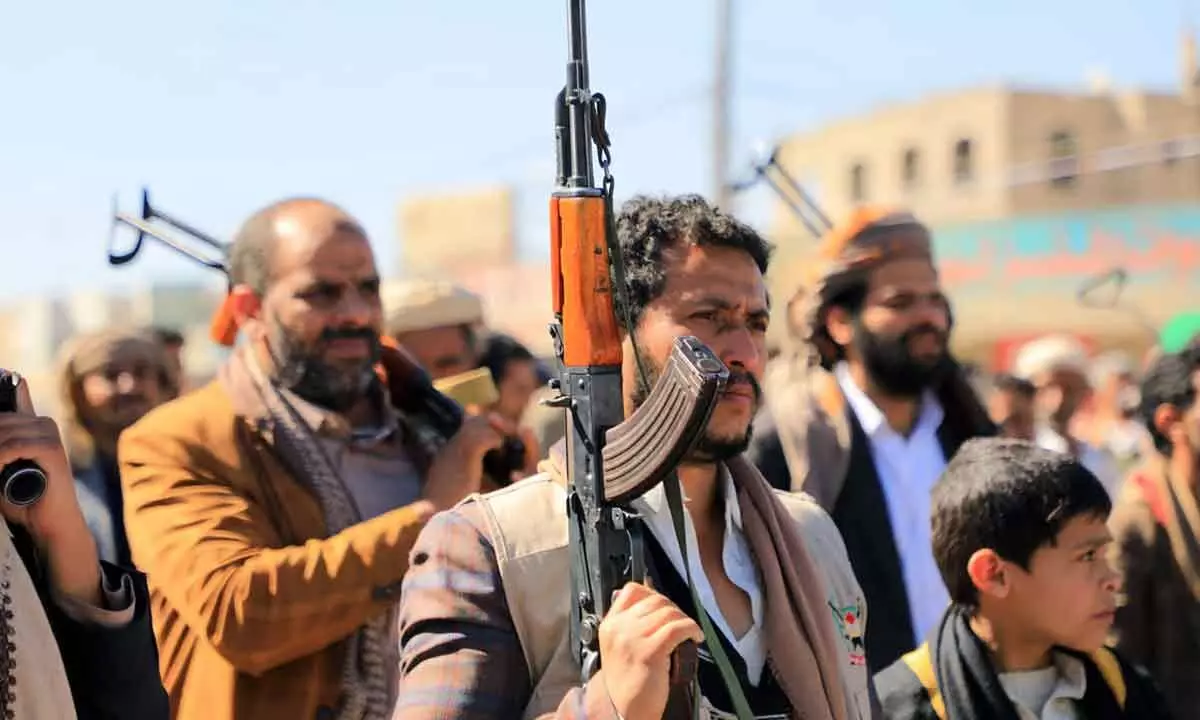A powder keg situation in Middle East

It’s another despairing case of ‘So near yet so far’ in respect of Middle East peace. Israeli retaliatory actions against the October 7 Hamas attack proved immensely disproportionate. At least 34,000 Palestinians were killed and many were wounded. Widespread destruction and famine conditions forced the people to flee to Rafah which itself is under siege now. The hapless thousands have nowhere to go. Anti-Israel protests are raging in many countries, including those Arab countries, such as Egypt, Jordan, which have peace treaty with Israel.
Hopes of peace that were stirred following Hamas’ acceptance of a ceasefire worked out by US, Egypt, and Qatar were dashed in no time with Israelis saying a firm no. Thus, as a temporary truce for ceasefire hangs in balance, Israeli tanks have rolled into Rafah, marking a huge escalation of Gaza conflict. Entire Gaza is already in dire humanitarian straits. Governments in the region and elsewhere are distressed by Israel PM Netanyahu’s obdurate stance on mounting the offensive. He also shut crossings, just as the recent one at Karem Shalom, to block the flow of aid into Gaza.
UN chief António Guterres is crying hoarse over a full invasion of Rafah, a southern city where most Palestinians inside Gaza are huddled together. Instead, a planned military operation would not so much consternation and anguish and distress. Netanyahu is so pathetic, he is not heeding pleas by even strong allies like the US and western friends. Guterres rightly warns: “Even the best friends of Israel are clear: An assault on Rafah would be a strategic mistake, a political calamity, and a humanitarian nightmare.”
It was only on Monday after laborious and intense efforts by peace brokers that Hamas agreed to the terms for a temporary ceasefire proposal, which if accepted by Israel, would have paved way for the release of about 30 of the Israelis hostages by Hamas in return for a pause on Rafah invasion. The world is aghast for months after so much intense diplomatic activity, there is no ceasefire, no release of hostages, no commencement of relief and rehabilitation for the displaced masses.
With the opportunity window for peace to Israelis themselves closing, in wake of Hamas and Hezbollah bracing to pound Israeli borders, it is time Netanyahu showed some political courage to secure a peace deal that he cannot afford to miss. Every peace monger so wishes Netanyahu would heed calls by allies and friendly Arabs to call off Rafah offensive, just as the then Israel PM Shamir reined in his fiery temper and refrained from retaliation against Iraq’s missile attacks, thus avoiding a confrontation with Arab nations in January 1991. But, Netanyahu heads an unruly coalition of ultranationalists and far-right religious figures who are baying for blood. His political survival depends on them and rambunctious colleagues in his Likud party. It is sad he views worldwide opposition to his war on Gaza simply as ‘a terrible volcano of anti-Semitism.’ Thereby, he is risking not only a bigger confrontation with Hezbollah from Lebanon, but also puts at stake global maritime trade as Iran’s other proxy Houthis attack ships in Red Sea.
In an election year, with a war-weary rival in Trump and many Democrats against any escalation, it is surprising why Joe Biden, unlike his predecessors, is so deferential towards Netanyahu. Instead of drawing red lines, he has offered unconditional US aid to Israel. Handling Netanyahu with kid gloves also puts US at risk of alienating the Saudis and the Emiratis who in rapprochement talks with Iran.


